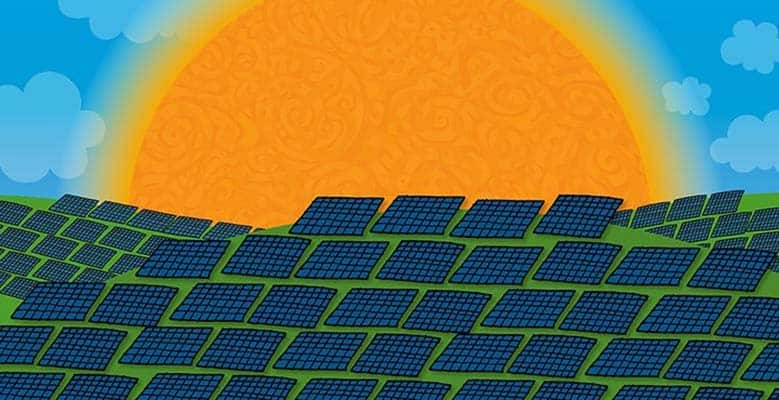August 1, 2017
-
It’s amazing how quickly technology advances. Back in the 1980s, mobile phones were large, clunky and so expensive that most couldn’t afford them. Now, the average smartphone costs a couple of hundred dollars, fits easily in your pocket, and has several thousand times more processing power than the computers NASA used to put Apollo 11 on the moon.
You can use your phone to pay your bills, manage your work schedule, and navigate you to your closest Scoop Shop for your Half Baked fix.
-
Technology to the Rescue
The onward march of technology is having the same effect on the world of energy. Unlike fossil fuels, which are becoming increasingly costly and difficult to extract, renewables are becoming easier and more cost effective by the day.
It’s a simple rule to understand, technology gets cheaper and more effective as it evolves, but the rate at which it evolves is often overlooked. Futurist and inventor Ray Kurzweil has noted, "We won’t experience 100 years of progress in the 21st century — it will be more like 20,000 years of progress [at today’s rate]". This idea that technological advancements will spike exponentially, leaving the world we know today far behind in no time.
This is why the renewable energy technology future is coming, and there’s nothing the big oil and coal companies can do to stop it.
-
Going Off-Grid
Just like modern mobile phones no longer needing a physical network of phone lines, renewables like solar power don’t require a centralised grid. This makes them far more nimble than fossil fuel sources, and – since they don’t require gigantic power stations costing billions of dollars – a whole lot more affordable to install. Put another way, investing in fossil fuels is a little like walking across town to stand and wait for a taxi when you could just order a ride from an app on your phone!
Thanks to this same flexibility, renewables are also an extremely attractive proposition for more remote parts of the world. After all, the capacity to operate completely off-grid is great news when there isn’t one within several hundred miles.
-
Improving Technology, Falling Costs
For the solar power industry in particular, business is booming. Driven by factors like improved solar cell technology, better manufacturing techniques, and economies of scale, the price per megawatt is falling rapidly. According to EcoWatch, the cost of solar energy has dropped by over 99% during the last 40 years, falling a hefty 65% since 2009. Bloomberg New Energy Finance estimates that solar power may overtake coal as the world’s cheapest energy source by 2025, and in the US, the solar power market is now growing quicker than coal.
-
Record Investment in Renewables
Such heavy investment is encouraging news. 2015 beat all sorts of records for renewable energy investment, and one of the biggest surprises was that it was the developing world leading the charge. In absolute terms, China was by far the biggest player, with a cool $103 billion poured into renewable energy sources. That’s nearly 40% of total world expenditure!
However, in comparison to overall wealth, it was Mauritania, Honduras and Uruguay that topped the tables as the world’s biggest investors. The fact that poorer countries like these are investing so heavily in renewables is more than a little embarrassing for richer regions like Oceania, Europe, the US. Clearly, it’s time for us to step up!
What’s striking about the rise of renewable energy is that the investment came at a time when the technology was still relatively expensive, and oil prices were at an all-time low. With costs of renewable energy production continuing to fall, just think what the picture might look like in five or 10 years!
-
Onwards to a Zero Carbon Future!
The facts show that renewables are a viable and cost effective source for all our energy requirements. Countries like Sweden and Norway are already pushing hard to transition to 100% renewable energy, and it’s high time the rest of us did the same. The technology already exists, and all we need is for our governments to support it! It’s down to us to pressure them to stop subsidising fossil fuels and go all-in on clean power.
